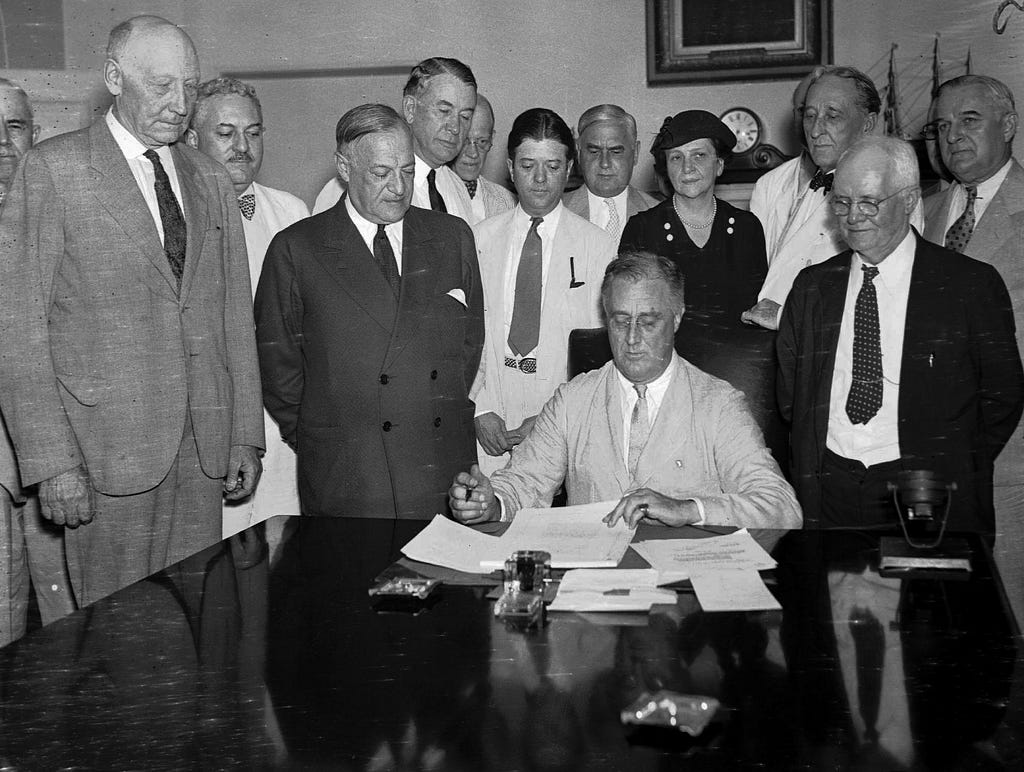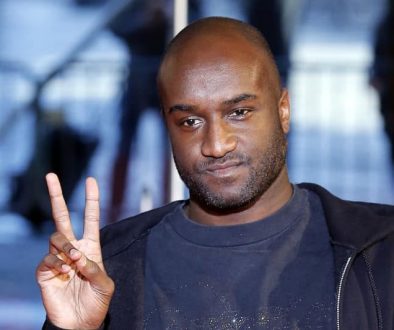Universal health care was almost part of the Social Security Act of 1935
This close for 80 years

President Franklin Delano Roosevelt planned for federally sponsored health insurance to be part of Social Security. It was thrown out in order to hurry the bill through Congress. By the time he and subsequent presidents attempted to return to the matter, conservatives had branded universal health care as part of a socialist agenda.
It didn’t help that FDR’s initial plan was incognito.
His predecessor, President Herbert Hoover, had upheld a policy of federal distance when it came to economic matters. A proponent of the free market, even amidst crisis, Hoover instead called on states to stabilize income and private charities to serve the immediate needs of the poor. It didn’t work. In 1931, the unemployment rate hit 15.8 percent. By 1933, the year FDR took office, it would reach 25 percent. Families were homeless and starving. Those who did work could not afford any sick time. The effects of nationwide poverty impacted all Americans.
In his first 100 days in office, FDR attempted to institute an unprecedented number of relief efforts to help bring the country out of the Great Depression. Ultimately, the old-age, retirement, and disability benefits awarded through Social Security became his most famous legacy. However, in order to pass the act through Congress, the president had to drop more comprehensive social insurance measures, namely, universal health care.
FDR’s top adviser on the Committee on Economic Security (CES) and a University of Wisconsin economist, Edwin Witte, recalled in a 1955 speech, “Health insurance was…intensely studied by the health insurance staff of the Committee and received a good deal of attention at top committee levels and at the White House.” But the issue wasn’t detailed in the bill or its recommendations. Instead, the CES stated it would make a later report on the subject of improving American social insurance, which included health care. It needed more time to prepare. “This innocent reference to health insurance led to the first special meeting of the House of Delegates of the American Medical Association, in the false belief that the administration was secretly trying to foist compulsory health insurance on the country. Immediately, the members of the Ways and Means Committee, then considering the social security bill in executive sessions, were deluged with telegrams from all parts of the country protesting against this ‘nefarious plot.’”
Because Roosevelt was pushing quickly, and had offhandedly mentioned the potential of comprehensive health care, Americans grew concerned. Their suspicions were fanned by the GOP and private medical lobbies like the American Health Association, which accused FDR of socialist conspiracy and government overreach.
“It was an effort to get universal health insurance, really, in the beginning of the 20th century,” admits Nancy Altman, president of Social Security Works. But FDR underestimated how contentious the idea would appear, especially given states like California had already introduced legislation (albeit failed) around universal health care.
The reasons FDR chose to leave health insurance out of the bill were matters of expediency. He thought the fastest way to get workers some benefits was to push through piecemeal legislation. Plus, the task of manually documenting an entire country’s worth of worker benefits was daunting. “It was too big a chunk to start out universal,” says Altman. Major industries and population segments — agricultural and home care workers, for example — were also left out of the initial plan for this reason. Though some critics charge racism, based on the chosen sectors, Altman says, “The Roosevelt administration was certainly more progressive than the society, who pushed for [Social Security] to be more limited.”
Roosevelt signed the Social Security Act on August 14, 1935. Republicans erupted, promising to overturn it. Instead, Democrats gained more Congressional power. In 1938, FDR declared, “At the third-year milepost, the road back shows well over 30,000,000 men and women now building up insurance against want in their old age (and) about 2,350,000 of the needy receiving assistance in their own homes; and health and welfare services reaching out into all parts of the country.”
That year, with retirement benefits secured, FDR attempted to return to work on universal health insurance. “A comprehensive health program [is] required as an essential link in our national defenses against individual and social insecurity,” he announced.
“The public support for a national health program which included health insurance was amazing,” said former Commissioner of Social Security Arthur Altmeyer in a 1965 speech. “The president was so enthusiastic that his first inclination was to make the health program an issue in the 1938 campaign. He then said he thought it would be better to make it an issue in the 1940 presidential campaign. World War lI then intervened.”
In his final State of the Union address in January 1945, FDR promised to communicate with Congress regarding expanded health security programs. Three months later, he died.
His successor, Harry Truman, took up the mantle immediately. In September he announced plans for the Fair Deal, which included “extending, expanding and improving our entire social security program.” Bills proposing a national health program were introduced to Congress, which by 1946 was Republican-led. They were a no-go. Subsequent attempts at “socialized medicine” were also denied, bolstered by Cold War fears of Communism.
Truman protested: “I put it to you, it is un-American to visit the sick, aid the afflicted or comfort the dying? I thought that was simple Christianity.” He left office without officially expanding health care.
However, President Lyndon B. Johnson would sign Medicare into law on July 30, 1965. As the nation’s health insurance provider for Americans aged 65 and over, Medicare was also the first major step toward socialized health insurance. Since 1996, roughly seven in ten Americans have expressed a favorable view of the program.
After his victory, Johnson proclaimed Truman “the real daddy of Medicare.” If that’s the case, FDR is its grandaddy. In 2010, Barack Obama became the godfather.
Universal health care was almost part of the Social Security Act of 1935 was originally published in Timeline on Medium, where people are continuing the conversation by highlighting and responding to this story.
Powered by WPeMatico


